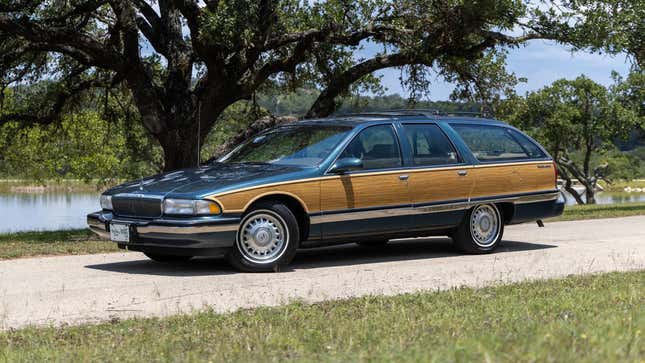
People have lamented how similar new cars all seem to look for decades, but car manufacturers don’t seem to share that concern. You see, automakers spend billions of dollars developing new vehicle platforms, fine-tuning things like structural rigidity, sound insulation, handling characteristics and more, so they naturally want to maximize the return on their investment. What’s a cost-effective way to do that? Commonly, it’s done by developing modular platforms that can be lengthened and shortened to fit different vehicle segments while sharing the same development costs and simultaneously streamlining the manufacturing process. When done well, this practice can create an array of refined and well-developed models while saving manufacturers money.
My favorite example of platform sharing is the General Motors B Platform, specifically because it underpins a trio of vehicles that have been the subject of my obsession since I was a kid: The Buick Roadmaster estate, Oldsmobile Custom Cruiser, and Chevrolet Caprice wagon. These three cars were the swan song for the old fashioned, traditional American family wagon, and their respective colossal footprints. Body-on-frame construction, bench seating for up to eight, and a big V8 under the hood sending power to the rear wheels as god intended. Is it an objectively good platform? No, it was antiquated from the get-go, but I still love it.
What say you, gang? What do you believe is the best example of platform sharing? It could be anything from an easy badge job to two totally different models that happen to use the same modular architecture.